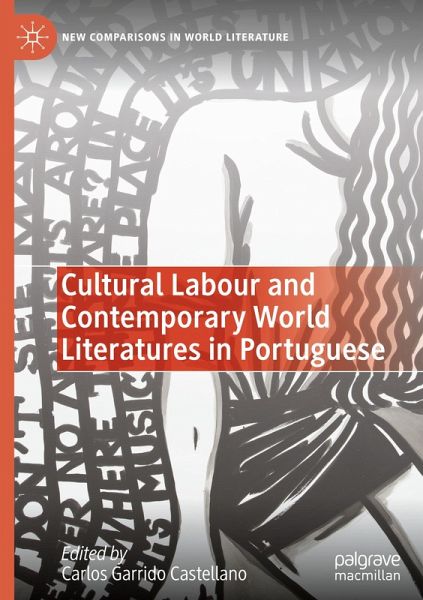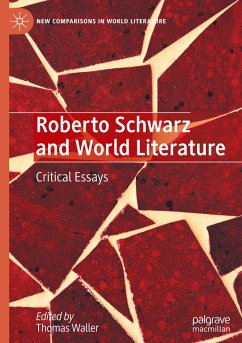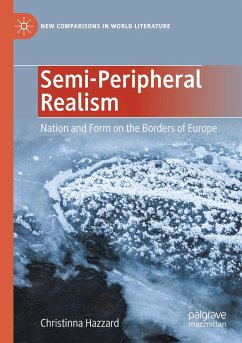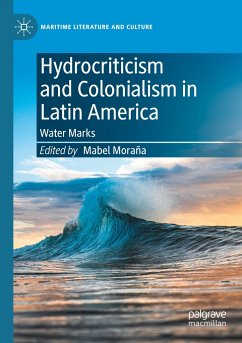
Cultural Labour and Contemporary World Literatures in Portuguese

PAYBACK Punkte
57 °P sammeln!
This book examines the evolution of contemporary narrative in Portuguese from the point of view of cultural labour. The main objective of this volume is to analyse the panorama of contemporary literary fiction in Portuguese under the prism of the economization of cultural creativity and the expansion of neoliberal understanding of creative subjectivity and self-realization. Assuming that neoliberalism still constitutes a haunting presence that becomes present in ways that are far from universal and homogeneous and that are shaped by coloniality, this book expands the debates on cultural labour...
This book examines the evolution of contemporary narrative in Portuguese from the point of view of cultural labour. The main objective of this volume is to analyse the panorama of contemporary literary fiction in Portuguese under the prism of the economization of cultural creativity and the expansion of neoliberal understanding of creative subjectivity and self-realization. Assuming that neoliberalism still constitutes a haunting presence that becomes present in ways that are far from universal and homogeneous and that are shaped by coloniality, this book expands the debates on cultural labour and literary materialisms beyond European and North American contexts. Dealing with contemporary literary production from Brazil, Portugal, Angola, Mozambique, Cabo Verde, Macau, Canada and Goa, the volume also tries to reimagine issues of cultural labour and the expansion of artistic modes of self-definition from the point of view of contemporary literary production in Portuguese.












